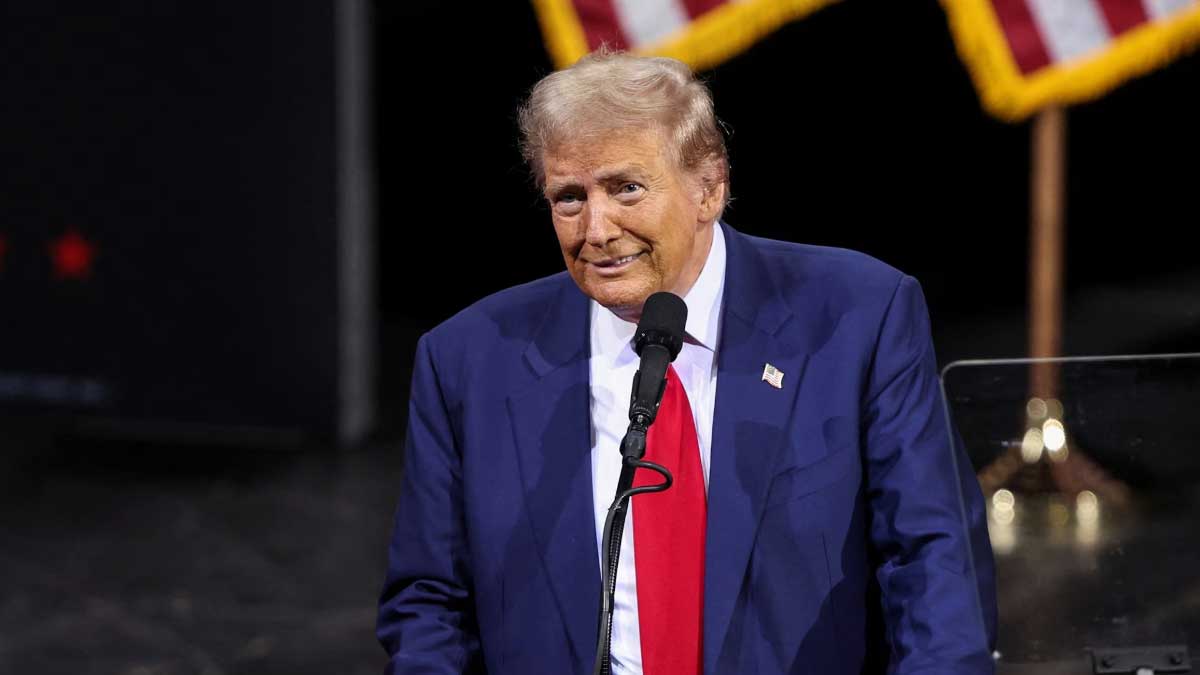- Home
- Billionaires
- Investing Newsletters
- 193CC 1000
- Article Layout 2
- Article Layout 3
- Article Layout 4
- Article Layout 5
- Article Layout 6
- Article Layout 7
- Article Layout 8
- Article Layout 9
- Article Layout 10
- Article Layout 11
- Article Layout 12
- Article Layout 13
- Article Layout 14
- Article Sidebar
- Post Format
- pages
- Archive Layouts
- Post Gallery
- Post Video Background
- Post Review
- Sponsored Post
- Leadership
- Business
- Money
- Small Business
- Innovation
- Shop
Recent Posts
Trump Proposes Ending Federal Taxes on Overtime

Former President Donald Trump has unveiled a new tax proposal aimed at eliminating federal taxes on overtime pay. During a speech on Thursday, Trump declared that his administration would “end all taxes on overtime” if he were re-elected. He framed this proposal as a significant reform in federal tax policy, intended to support some of the “hardest working citizens” in America. The proposal targets income earned from overtime work, which is currently taxed at the same rate as regular income. By removing these federal taxes, Trump argues that it would provide financial relief to a range of workers, including nurses, construction workers, police officers, and factory workers, and offer benefits to employers.
Trump’s announcement follows his earlier summer proposals to exempt tip and Social Security income from federal taxes. However, he did not provide detailed specifics on how the new proposal would be implemented or financed. This proposal is part of Trump’s broader campaign strategy focused on ambitious tax cuts and economic incentives. Previous proposals, including reducing the corporate tax rate from 21% to 15% for companies manufacturing in the U.S., are projected to create significant revenue shortfalls. Estimates suggest that Trump’s tax policies could result in $1.6 billion in losses for Social Security and Medicare between 2026 and 2035.
The elimination of federal taxes on overtime pay is expected to have mixed effects. On one hand, it could increase disposable income for workers who regularly earn overtime. On the other hand, it might lead to reduced federal revenue, potentially impacting government finances and funding for social programs. This proposal reflects Trump’s broader approach to tax policy, which includes substantial reductions aimed at stimulating economic activity and providing relief to specific groups.
In response to Trump’s proposals, Vice President Kamala Harris has also put forward significant tax-related measures. Harris has proposed ending federal taxes on tips, a move she introduced after Trump’s initial announcement. Additionally, she has suggested a $50,000 tax deduction for startup expenses incurred by small businesses and an expansion of the child tax credit up to $6,000 for families with newborns. While these proposals aim to support small businesses and families, they also face scrutiny regarding their potential impact on federal revenue. The Tax Foundation estimates that Harris’ proposals could reduce federal revenue by over $2.2 trillion and significantly diminish the ability to address emerging debt crises, though her plan is projected to raise approximately $642 billion over a decade.
As the presidential campaign continues, Trump’s tax proposals are likely to remain a focal point of debate. The proposals offer potential benefits to workers but raise questions about their long-term effects on federal revenue and government finances. Voters and analysts will need to weigh these trade-offs carefully, considering both the immediate relief for workers and the broader economic implications of reduced federal income.
Recent Posts
Categories
- 193cc Digital Assets2
- 5G1
- Aerospace & Defense46
- AI37
- Arts3
- Banking & Insurance11
- Big Data3
- Billionaires449
- Boats & Planes1
- Business328
- Careers13
- Cars & Bikes76
- CEO Network1
- CFO Network17
- CHRO Network1
- CIO Network1
- Cloud10
- CMO Network18
- Commercial Real Estate7
- Consultant1
- Consumer Tech180
- CxO1
- Cybersecurity68
- Dining1
- Diversity, Equity & Inclusion4
- Education7
- Energy8
- Enterprise Tech29
- Events11
- Fintech1
- Food & Drink2
- Franchises1
- Freelance1
- Future Of Work2
- Games141
- GIG1
- Healthcare78
- Hollywood & Entertainment186
- Houses1
- Innovation42
- Investing2
- Investing Newsletters4
- Leadership65
- Lifestyle11
- Manufacturing1
- Markets20
- Media193
- Mobile phone1
- Money13
- Personal Finance2
- Policy567
- Real Estate1
- Research6
- Retail1
- Retirement1
- Small Business1
- SportsMoney33
- Style & Beauty1
- Success Income1
- Taxes2
- Travel10
- Uncategorized8
- Vices1
- Watches & Jewelry2
- world's billionaires418
Related Articles
Trump Moves $4B Stake in Truth Social Parent, Stock Drops 6%
Donald Trump recently transferred his 57% stake in Trump Media & Technology...
By 193cc Agency CouncilDecember 20, 2024House Rejects Trump-Backed Funding Bill, Shutdown Looms
The U.S. House of Representatives rejected a new government funding bill on...
By 193cc Agency CouncilDecember 20, 2024Trump Named Time’s Person of the Year for Second Time
On Thursday, Time magazine honored Donald Trump as its “Person of the...
By 193cc Agency CouncilDecember 12, 2024Meta Donates $1 Million to Trump’s Inaugural Fund
Meta, the parent company of Facebook and Instagram, has confirmed a $1...
By 193cc Agency CouncilDecember 12, 2024















Leave a comment